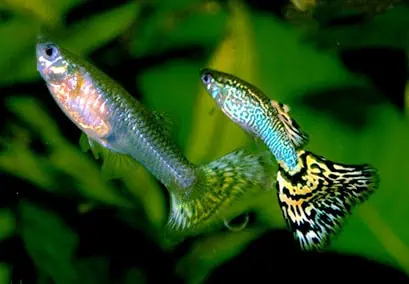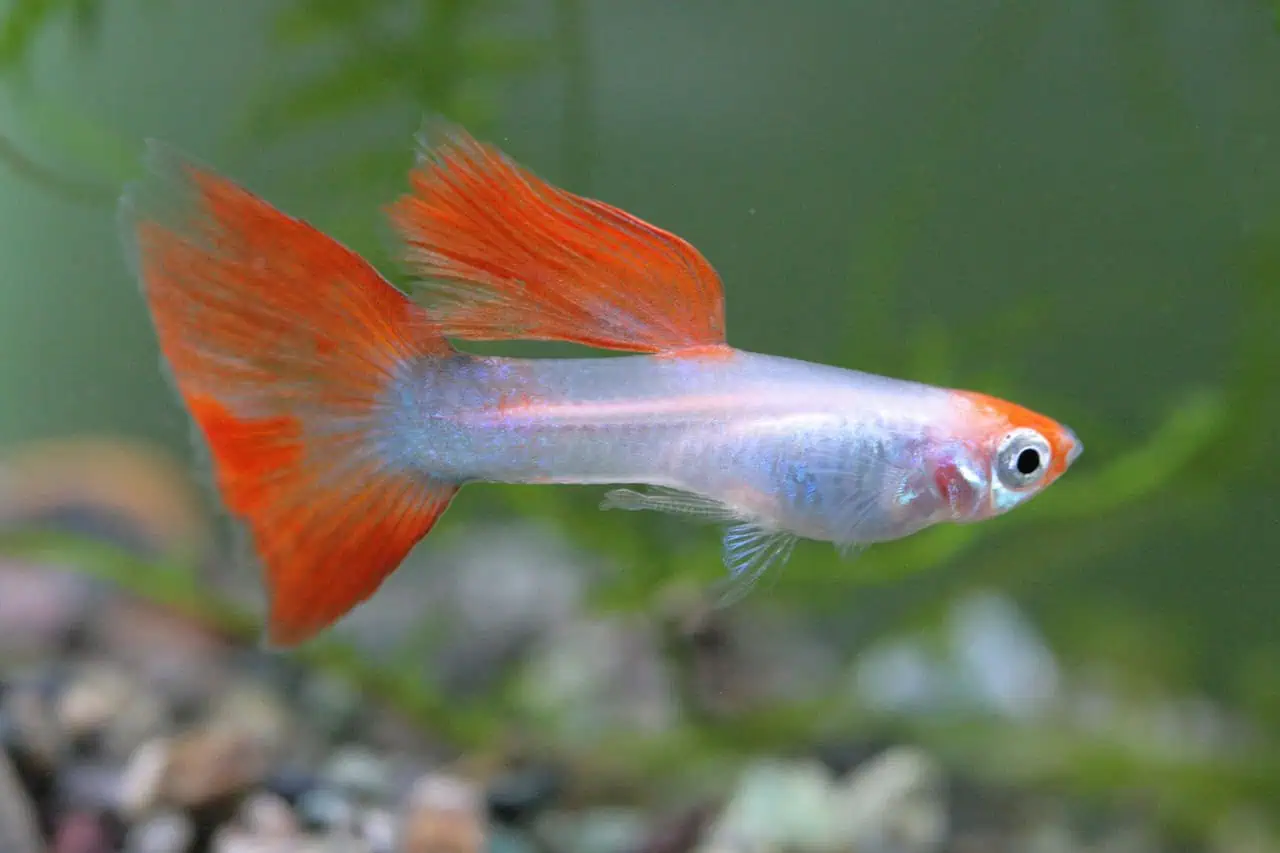Exact Answer: 2-3 years
Guppies are tropical fish that are widely spread across the world. These fish feature beautiful colors and are found in freshwaters which makes them perfect for aquarium. Male guppies are smaller than the female guppies.
Guppies feed on various food sources, including the aquatic larvae and the benthic algae. These species of fish are known for having a short life span. In this article, we shall discuss how long do guppies live and why.

How long do guppies live
Guppies, as we all know, are hardy fish and are easy to take good care of at home. They make an excellent choice in the aquarium due to their colorful bodies. It takes approximately 6 to 7 weeks for a male guppy to mature and 9 to 10 weeks to the female guppy to mature. Their life expectancy is said to be 2 to 3 years.

With high care guppies, life expectancy can reach up to 5 years which is its maximum life expectancy. However, guppies living in the wild tend to have a shorter life span compared to those living in the tank.
Why do guppies have a short life span?
There are various factors associated with the short life span of the guppies such as;
Temperature
Water temperate has a significant impact on guppies’ life expectancy. Usually, the optimal temperature for a guppy is approximately 75o F. However; they are known to tolerate temperatures that are higher or lower than 75o F. Temperatures above 80o F are said to increase guppies’ metabolism whereas lower temperatures tend to slow down their function.
Quality of food
Giving quality food to guppies will help in improving their life span; furthermore, they are known to feed almost on anything. You should ensure that your guppies receive the right quantity of essential minerals and vitamins.
Quality of water
The life span of guppies increases when they live in water with excellent quality. Other than using a filtration system in removing wastes, changing the fish tank water will ensure optimal health for your pet.

Stress
Poor lighting, sudden temperature change, overcrowding and improper feeding are among the significant causes of stress among guppies. Stress is said to cut short guppies’ life expectancy. Ensure that your guppies receive a notorious meal and avoid sudden temperature change as well as overcrowding to increase their life span.
Conclusion
When purchasing a guppy as a pet, ensure that it is not old enough. On the other hand, water parameters are very critical when it comes to guppies’ life expectancy. Since these fish are very hardy, they can support various ranges of water parameters such as;
- Water pH of 6.8 to 7.8.
- The temperature of the water should be within 72o F to 82oF.
- Maximum 10 ppm nitrate, 0 ppm ammonia and 0 ppm nitrites
- The hardness of the water dGH should be 8 to 12.
These features make the tap water best for use. However, you should be careful with it since they contain heavy metals as well as chloramine and chlorine.